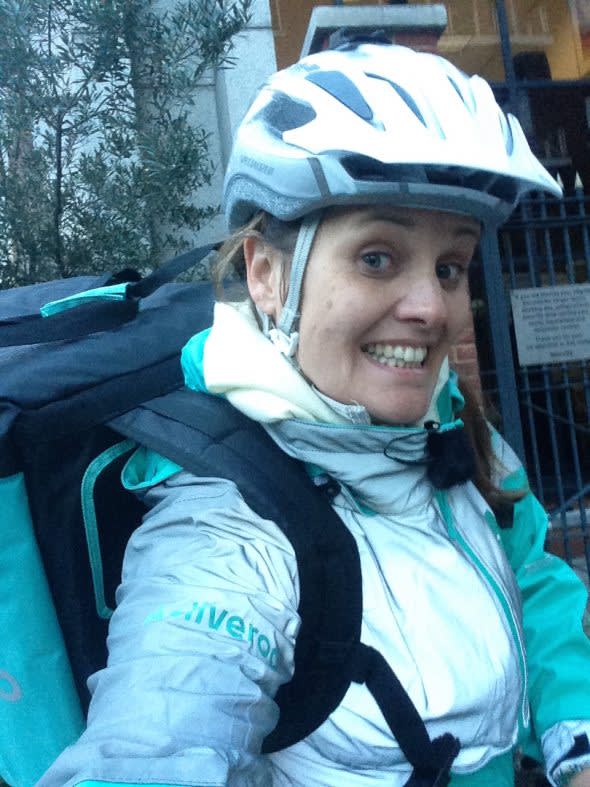From FT Alphaville:
FT Alphaville’s Izabella Kaminska spent some time working for Deliveroo this autumn to get to the bottom of how fair or unfair the job really was. Here are her observations alongside a full response from Deliveroo.
Having spoken to countless drivers about their experience working for Uber, I’d seen how quickly positive comments can turn into negative ones when they discover I am a journalist or simply open minded to the idea that the service isn’t always as great as it seems to users. Consequently I was never 100 per cent sure if the testaments I was getting were faithful. At the end of the day I was a customer, or riding alongside a customer, and drivers had an interest in pandering to my assumptions and biases (in my case that Uber isn’t a cost effective model). Ratings matter, and people you agree with tend to be inclined to rate you higher.
To get a different perspective I would survey forums, attend protests or speak to other drivers from competing firms. But again, I had to admit the defenders of the gig economy had a point, most of these sources had a vested interest in talking the platforms down or were compromised in some other way.
There was, I decided, only one way to figure out if my presumptions about the empowerment claims these companies were making was correct. To try a gig economy job out myself.
There was only one problem: I didn’t have the sort of vehicle at my disposal that could allow me to work for Uber. I only had a bicycle.
The Deliveroo application

Wanting to keep my capital spending to a limit, I turned instead to a different gig-economy model. On August 10, I applied for a job at food dispatching firm Deliveroo, where the company spiel encouraged working people who were looking for flexible supplementary income to apply. It was the flexibility that attracted me, in other words.
I applied using my real legal identity....MOREAlso at Alphaville:
Yesterday:
Ha! We Were About To Publish A "Where In the World Is Izabella Kaminska" Post